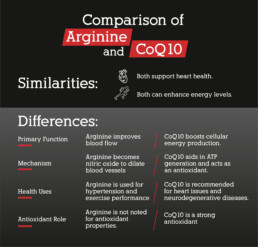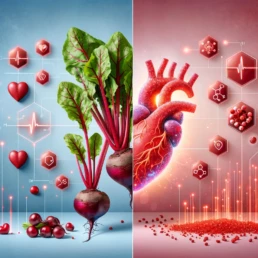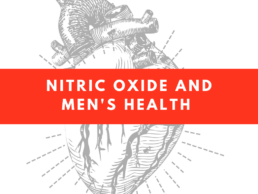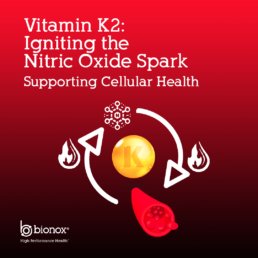Women's Health: Nitric Oxide
What is Nitric Oxide, and How Does it Work?
Nitric oxide (NO) is a molecule that plays a crucial role in many bodily functions, including the cardiovascular, immune, and nervous systems. It is a gas produced naturally in the body and acts as a signaling molecule to regulate blood flow, cell growth, and communication between cells. Nitric oxide is also a vasodilator, which means that it widens blood vessels. This property thus allows for improved blood flow throughout the body.
Regarding women's health, nitric oxide can be particularly beneficial in improving blood flow to the uterus and ovaries, which can help support healthy reproductive function. Nitric oxide also promotes healthy immune function, reduces inflammation, and supports healthy blood pressure. These are definitely all good things for women and women's health! What are some things nitric oxide can do for you? Let's see!
Benefits of Nitric Oxide for Women's Health
Improved Cardiovascular Health: Nitric oxide helps to promote healthy blood flow and circulation, which can help reduce the risk of cardiovascular disease in women. Studies have shown that nitric oxide supplementation can improve blood pressure and reduce the risk of blood clots, which can lead to heart attacks and strokes.
Improved Reproductive Health: Nitric oxide promotes healthy blood flow to the uterus and ovaries, which can help support healthy reproductive function in women. Nitric oxide may also help reduce inflammation in the reproductive system, which can alleviate symptoms associated with menstrual cramps and other menstrual-related issues.
Improved Athletic Performance: Nitric oxide is also known to enhance athletic performance in women. It can help improve endurance and reduce fatigue, allowing women to exercise for more extended periods. Nitric oxide can also help to improve recovery time after exercise, reducing soreness and inflammation.
Improved Brain Function: Nitric oxide is also vital for healthy brain function in women. It helps improve blood flow and oxygen delivery to the brain, improving cognitive function and reducing the risk of age-related mental decline.
How to Increase Nitric Oxide Levels in Women
Dietary Changes: One of the easiest ways to increase nitric oxide levels in women is through nutritional changes. Foods rich in nitrates, such as beets, leafy greens, and citrus fruits, can help boost nitric oxide levels in the body. Incorporating these foods into your diet can help to promote better overall health and well-being.
Supplementation: Supplementation is another way to increase nitric oxide levels in women. Many nitric oxide supplements are on the market that can help boost nitric oxide levels in the body. These supplements typically contain ingredients like L-arginine, L-citrulline, and beetroot extract, which are all known to support healthy nitric oxide production.
Exercise: Exercise is also an essential factor in nitric oxide production. Regular exercise can help to increase nitric oxide levels in the body, improving blood flow and circulation throughout the body. It is recommended that women engage in at least 30 minutes of moderate exercise each day to help promote healthy nitric oxide levels.
Stress Reduction: Finally, reducing stress levels can also help increase nitric oxide levels in women. Stress can negatively impact nitric oxide production, so taking steps to reduce stress and promote relaxation can help improve overall health and well-being.
A Vital Role In Health
To summarize what we have learned, nitric oxide is a crucial molecule that plays a vital role in many bodily functions, particularly regarding women's health. By promoting healthy blood flow and circulation, reducing inflammation, and supporting healthy reproductive function, nitric oxide can benefit women. Incorporating dietary changes, supplementation, exercise, and stress reduction techniques can all help to increase nitric oxide levels in the body, promoting.
Nitric oxide is a vital molecule that plays an essential role in maintaining women's overall health and wellness. From improving cardiovascular health to enhancing sexual function and exercise performance, nitric oxide can benefit women in various ways. Furthermore, it can also improve skin health by reducing inflammation and stimulating collagen production. These last two are great for maintaining healthy skin and nails!
What else is there to learn?
Nitric oxide is a molecule that is naturally produced by the body, and it has been studied extensively for its various health benefits. Women can significantly benefit from nitric oxide, which is crucial in maintaining their overall health and wellness. For instance, nitric oxide can help improve cardiovascular health by reducing blood pressure and improving blood flow. High blood pressure is a major risk factor for heart disease, which is a leading cause of death among women.
Nitric oxide can also benefit women's sexual health. It can increase blood flow to the genital area, improving sexual arousal and orgasm quality. Studies have shown that taking nitric oxide supplements can help postmenopausal women increase their sexual desire and satisfaction.
Additionally, nitric oxide can enhance women's exercise performance by increasing blood flow and oxygen delivery to muscles. It can also improve the efficiency of mitochondria, produce energy, improve endurance, and reduce fatigue.
Lastly, nitric oxide can improve skin health. It can increase blood flow and oxygen delivery to the skin, improving skin tone and texture. Nitric oxide can also reduce inflammation and stimulate collagen production, resulting in firmer and more youthful-looking skin.
How you can benefit
If you are a woman looking to improve your overall health and wellness, consider incorporating nitric oxide supplements into your daily routine. However, talking to a healthcare professional before taking any new supplements is essential. With the proper care and support, nitric oxide can be a valuable tool for women looking to enhance their health and wellbeing.
References
- Alvares, T. S., et al. "Acute L-arginine supplementation increases muscle blood volume but not strength performance." Applied Physiology, Nutrition, and Metabolism, vol. 36, no. 4, 2011, pp. 559-68.
- Børsheim, Elisabet, and Melinda Sheffield-Moore. "Muscle wasting and aging: experimental models, fatty infiltrations, and prevention." Journal of Nutrition, Health & Aging, vol. 15, no. 10, 2011, pp. 877-882.
- Cooke, Jonathan P., et al. "Acute ingestion of beetroot juice increases exhaled nitric oxide in healthy individuals." Journal of Applied Physiology, vol. 117, no. 11, 2014, pp. 1280-1287.
- Cutrufello, Paul T., et al. "Effects of arginine-based supplements on the physical working capacity at the fatigue threshold." Journal of Strength and Conditioning Research, vol. 24, no. 5, 2010, pp. 1306-1312.
- Kishi, T., et al. "Effects of nitric oxide on skin elasticity and wrinkles." Journal of Cosmetic Dermatology, vol. 12, no. 3, 2013, pp. 196-204.
- Leiper, J. B., et al. "Effects of dietary nitrate supplementation on the oxygen cost of exercise and walking performance in individuals with type 2 diabetes: a randomized, double-blind, placebo-controlled crossover trial." Free Radical Biology and Medicine, vol. 86, 2015, pp. 200-208.
- Tong, B. C., et al. "Effects of nitric oxide on female sexual arousal." Journal of Sexual Medicine, vol. 8, no. 2, 2011, pp. 330-337.
Arginine Vs COQ10
Arginine Vs COQ10, which one wins in a match for the best blood pressure supplement? Let’s see!
When it comes to keeping our hearts healthy, understanding how to manage blood pressure is vital. After all, high blood pressure is a silent enemy that can lead to severe health issues without warning.
One of the most proactive steps we can take to protect our health is exploring natural supplements. Nature offers amazing nutrients that support cardiovascular health in various ways.
Arginine and CoQ10 are both well-known for supporting heart health. Both of these supplements offer promising benefits, but how do they work, and what makes them so effective? Are they the same, or does each one work differently?
Let’s get to the heart of the matter and discover how these supplements might be the friends your heart has been looking for.
COQ10 How does it work?
CoQ10, a key component in the Arginine vs CoQ10 discussion for heart health, works by energizing your cells and acting as an antioxidant. In every cell of your body, CoQ10 helps convert food into energy, which is vital for a healthy heart and muscle maintenance and helps maintain your energy levels.
Fun Fact:
Many people report a noticeable boost in their energy levels after taking CoQ10. It’s often described as feeling like having a switch has flipped on, powering them through their daily activities. This increase in energy is especially appreciated by those who lead busy lifestyles or need extra endurance throughout the day. CoQ10, by aiding in energy production at the cellular level, helps maintain a steady supply of get up and go, making it a popular choice for enhancing overall stamina and alertness.
As an antioxidant, CoQ10 also combats oxidative stress that affects cardiovascular health, helping to protect the heart and blood vessels from damage. This dual role makes CoQ10 essential for maintaining your heart cells’ energy production and defense systems. This is particularly important as we age or manage blood pressure issues.
How COQ10 Protects
CoQ10 protects cells by acting as a shield against oxidative stress. Think of your body as a city and your cells as buildings. Oxidative stress is like bad weather—such as pollution or too much sun—that can damage the structures over time. CoQ10 helps guard the cells, keeping this harmful weather from causing too much damage.
This protection is crucial because it helps keep the cells healthy and energetic. It is much like how a well-maintained building continues to function effectively for a long time. With CoQ10 around, your body’s cells are safer and can perform better for longer.
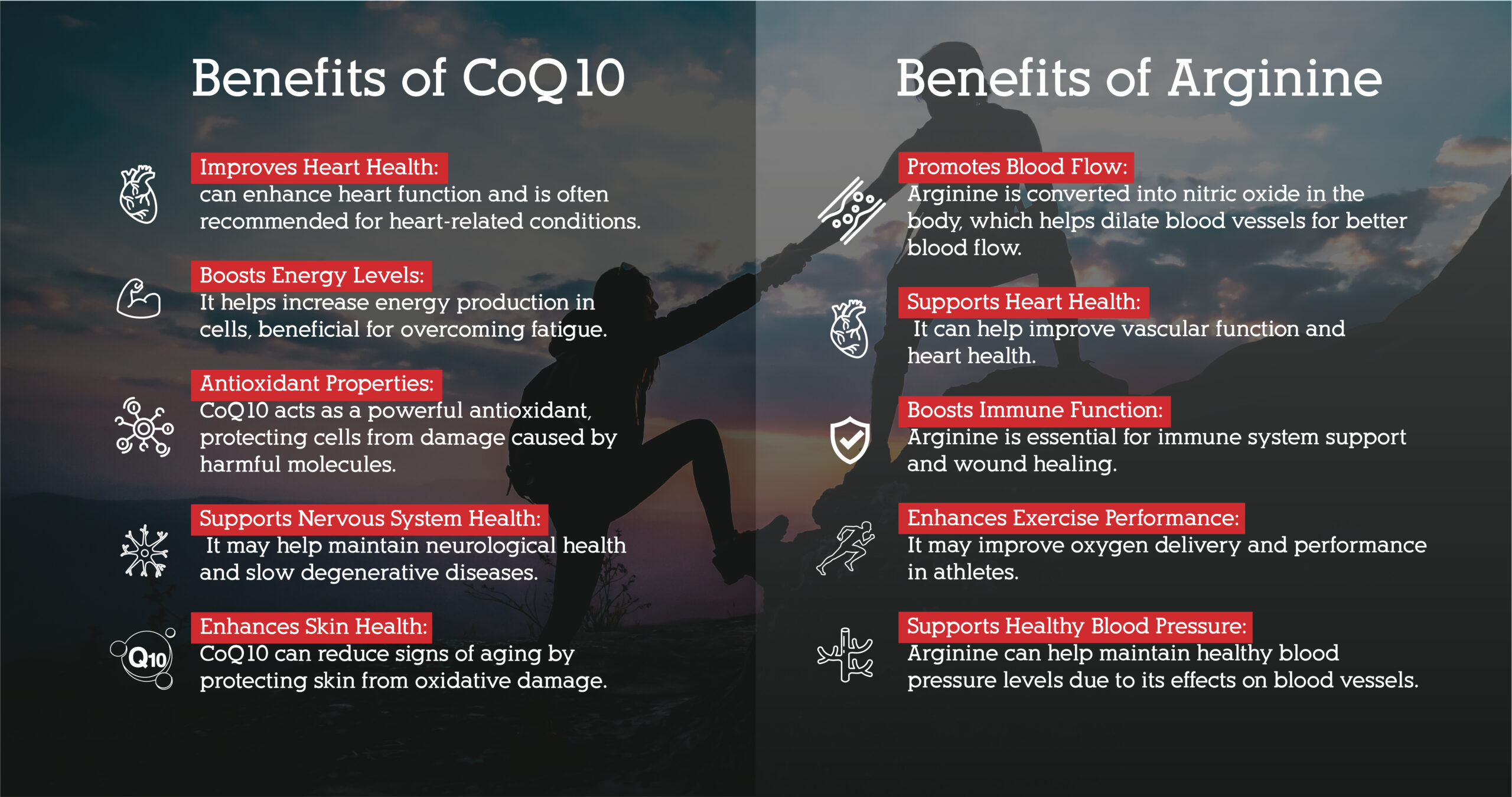
Why is COQ10 so effective?
CoQ10 is highly effective as a supplement. In the body, CoQ10 helps support healthy energy levels, which is essential for the functioning of all cells. This is particularly true in energy-demanding organs like the heart.
Research has shown CoQ10 to be particularly beneficial for heart health and cardiovascular issues. It may improve symptoms of heart failure and, in some studies, has been associated with a reduced risk of major adverse cardiovascular events.
This is because CoQ10 helps maintain the mitochondria, the powerhouses of cells, and protects against oxidative stress, which damages cellular components.
CoQ10 supplementation has been shown to potentially lower blood pressure and help manage statin-induced muscle pain, which are common issues for those with cardiovascular problems.
How is COQ10 Different From Arginine?
CoQ10 and Arginine are both popular supplements used for their cardiovascular benefits, but they function in distinct ways:
Source and Nature
CoQ10: Naturally produced in the body and found in foods like meat and fish. It is primarily used as an antioxidant.
Arginine: An amino acid obtained from dietary sources or supplements, crucial for the production of nitric oxide, a compound that relaxes blood vessels.
Primary Functions
CoQ10: Helps in energy production within cells and acts as an antioxidant, protecting cells from damage.
Arginine: Directly contributes to the production of nitric oxide, which helps dilate blood vessels for better blood flow.
Health Benefits
CoQ10: Supports heart health by improving energy production in heart cells and reducing oxidative stress. It may also help reduce the symptoms of conditions like heart failure and migraine headaches.
Arginine: Boosts nitric oxide levels in the blood, which can help lower blood pressure, improve circulation, and enhance athletic performance.
Usage in Medical Treatments
CoQ10: This supplement is often recommended for patients with heart conditions or those taking statins, which can lower natural CoQ10 levels in the body.
Arginine: Used to improve blood flow, which can be beneficial in treating conditions like clogged arteries, chest pain, and erectile dysfunction.

Arginine: How does it work?
Arginine, the other player in the Arginine vs CoQ10 debate, primarily functions by boosting nitric oxide production, a crucial compound that relaxes and widens blood vessels.
This process enhances blood flow throughout the body. It is essential for maintaining cardiovascular health and supporting efficient nutrient and oxygen delivery to various tissues. It can lower blood pressure, health the endothelium, and support many bodily functions.
Fun Fact:
People often report feeling more vibrant and noticing improved physical performance when incorporating Arginine into their supplement routines. This is largely due to the enhanced blood flow and oxygen delivery that Arginine facilitates, which is particularly beneficial during workouts or any activity requiring endurance and strength.
As a precursor to nitric oxide, Arginine plays a direct role in cardiovascular health by aiding vascular dilation, which can help reduce blood pressure levels and improve overall heart health. The ability to support nitric oxide production becomes increasingly important with age, as natural levels of nitric oxide production tend to decrease. This decrease can be from heavy metal toxicity.
How Arginine Protects
Arginine protects by enhancing the body’s natural ability to produce nitric oxide, which not only improves circulation but also supports the immune system and aids in the removal of ammonia, a waste product in the body. The increased blood flow can also help in delivering more nutrients and oxygen to vital organs, promoting healing and better overall health.
This protective mechanism is crucial for maintaining an efficient vascular system, much like how well-lubricated gears keep a machine running smoothly. With adequate levels of Arginine, your body’s ability to maintain optimal circulation is enhanced, supporting long-term health and vitality.
Why is arginine so effective?
Arginine is highly effective because it plays a crucial role in producing nitric oxide, a molecule vital for various bodily functions, particularly in cardiovascular health. Here’s how Arginine stands out:
- Boosts Nitric Oxide Production: Arginine is directly involved in synthesizing nitric oxide (NO). NO is a powerful neurotransmitter that helps blood vessels relax and improves circulation. This is essential for regulating blood flow and blood pressure.
- Supports Heart Health: Arginine enhances blood vessel relaxation and circulation, Which can help reduce blood pressure, which is beneficial for heart health. The increased NO production also helps prevent arterial plaque growth and blood clot formation.
- Improves Exercise Performance: Arginine is popular among today’s athletes because it is believed to improve blood flow, oxygen delivery to muscles, and exercise performance. This can result in increased endurance and reduced muscle fatigue. This use is totally safe and legal.
- Supports Immune Function: Arginine serves as a stimulant for the immune system. It has been shown to support the health of the body’s immune response, aiding in the healing and repair processes.
- Enhances Wound Healing: Arginine is also effective in wound healing due to its ability to improve blood flow. Enhanced circulation means more nutrients and oxygen can reach the wound area, speeding up healing.
The effectiveness of Arginine, especially in terms of cardiovascular support and enhanced physical performance, is backed by various studies and research, highlighting its role in promoting nitric oxide production and overall health benefits.
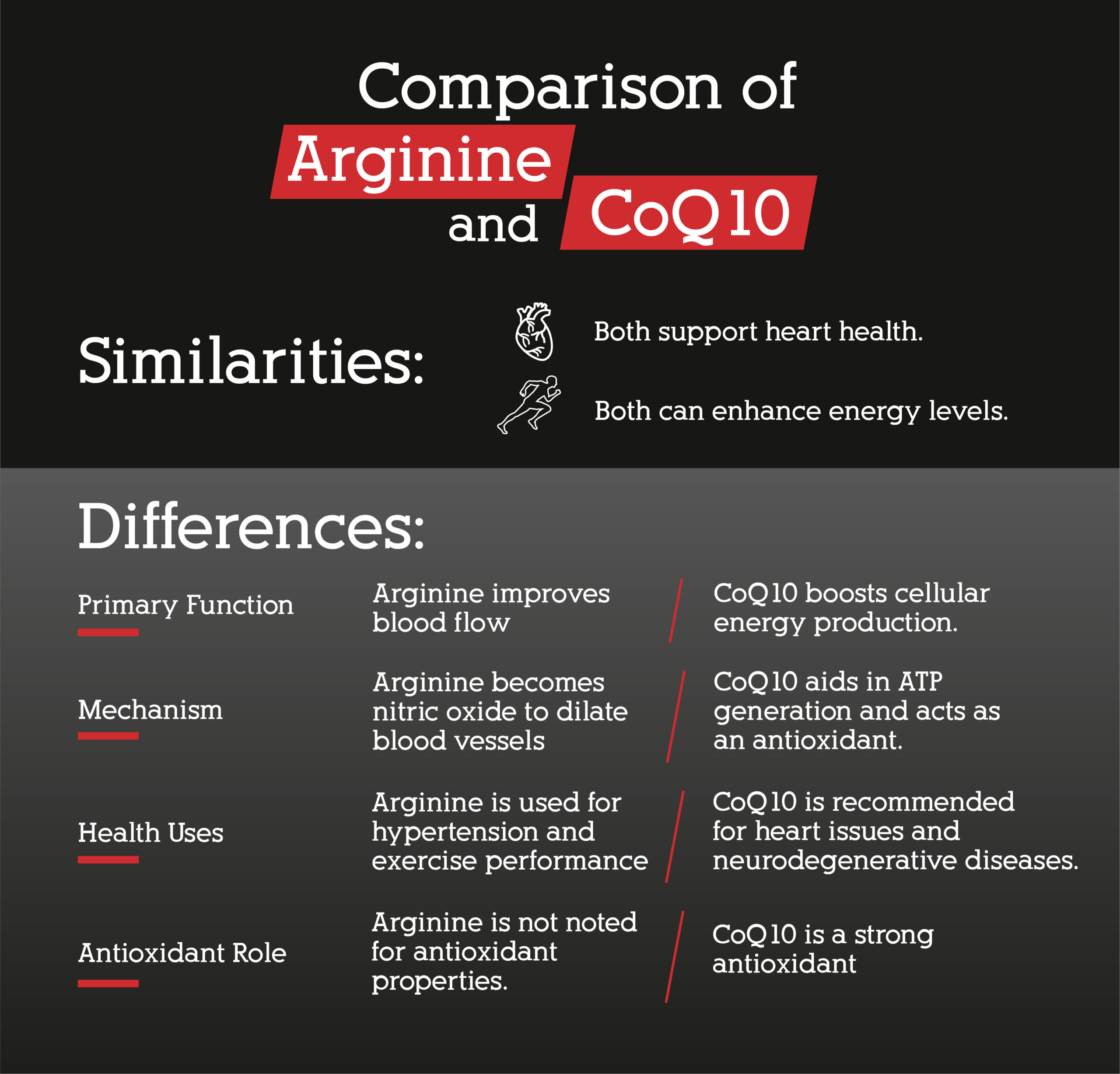
Beets or CO Q 10, Which Is Better For Blood Pressure?
Beets vs. CO Q 10: Which Champion for Blood Pressure Should You Root For?
Have you ever wondered if nature has a secret potion for naturally controlling your blood pressure? Many today turn to either beets or CO Q 10, hoping to find an ally in the battle against high blood pressure.
Are they both good? Do they both work? Do they both do the same things?
These are just a few questions we will answer.
So, let’s explore the powers of these two contenders and see which might be the most effective in keeping your blood pressure in check.
Beetroot Forms and Their Health Benefits
Whole and Natural Beetroot
Eating beetroot naturally, whether raw, cooked, or fermented, provides significant health benefits. Rich in fiber, it supports gut health and digestion. Its high nitrate content is known for improving blood flow and reducing blood pressure, making it beneficial for cardiovascular health.
Beetroot Nitrate Variability
Not all beetroots have the same nitrate levels. The nitrate content in beets can vary significantly depending on the soil composition and farming techniques used. Soils rich in nitrogen tend to produce beetroots with higher nitrate content. However, agricultural practices, such as using certain fertilizers and crop rotation methods, also play a crucial role in determining the nitrate levels in these veggies. The take away here is buying beets at the store is a crap shoot. You have no idea if they will have any nitrates at all.
Top 5 Reasons Why Store-Bought Beetroot May Lack Nitrates
- Soil Depletion: Intensive farming practices can deplete the soil of nutrients, including nitrogen, which is crucial for nitrate formation in beetroots.
- Inconsistent Fertilization Practices: Lack of standardized fertilization across different farms can lead to varying nitrate levels in beetroots.
- Harvesting Time: Beetroots harvested too early may not have had enough time to accumulate nitrates naturally.
- Storage Conditions: Long storage durations and improper conditions may reduce the nitrate content of beetroots before they reach the consumer.
- Varietal Differences: Some beetroot varieties are naturally lower in nitrates due to genetic factors.
Beetroot Juice
Beetroot juice amplifies the vegetable’s benefits, especially for lowering blood pressure and enhancing athletic performance. The conversion of nitrates to nitric oxide can significantly improve blood flow, thus helping lower blood pressure and enhance endurance. The same caveat applies to juice as to whole beets. This is all dependent on how many nitrates are present.
If you are purchasing beet juice, look at the label. Do they list nitrate count? You are looking for at least 50mg nitrates per serving. Anything less wouldn’t have much of a health effect.
Beetroot Powder
Beetroot powder offers a concentrated form of the vegetable’s benefits, including anti-inflammatory properties, thanks to the presence of betalains. Rich in fiber and antioxidants, it helps fight inflammation and support brain health. However, as with all the other forms of beetroot, if the beets are not from a great source, they will have limited nitrates and do nothing for your heart or blood pressure.
Beetroot powder is not only famous as a supplement for humans but is also used as an ingredient in dog food. Some pet food companies use beetroot powder as a cheap filler due to its low cost and high fiber content. I say this so you know that not all beetroot is high quality, so you should buy cautiously. Look for a nitrate count; if none exists, it’s probably poor quality.
Studies on Beetroot’s Health Benefits
Numerous studies have underscored the health benefits of beetroot, particularly its ability to lower blood pressure, reduce inflammation, and protect against oxidative stress and inflammation. Again, nitrates are vital components here, so always remember, it’s not just the beet; it’s what’s in the beetroot! The nitrates produce nitric oxide (no), opening your veins and arteries and stimulating the immune system.
Studies on Beets
In a detailed article published in the National Center for Biotechnology Information (NCBI), researchers delve into the cardiovascular benefits of the dietary nitrates found in beetroot. The study explains that these nitrates help lower blood pressure and improve overall heart health by enhancing the body’s nitric oxide production. This compound is crucial for dilating blood vessels and improving blood circulation. The findings support the potential of nitrates as a natural, non-pharmacological option for preventing and managing heart diseases.
You can read more about this research here.
There are literally thousands of studies on beets and nitrates and all their benefits.
Beets in Summary
In summary, beets are good for your heart and blood pressure only when they contain nitrates. Nitrates create nitric oxide, which acts as a blood vessel opening agent, lowering your blood pressure, among a massive list of other benefits. Beets work when they are high quality, from suitable farms, places, etc. They work to support heart health, have been proven to do so by science, and are incredibly safe to use.
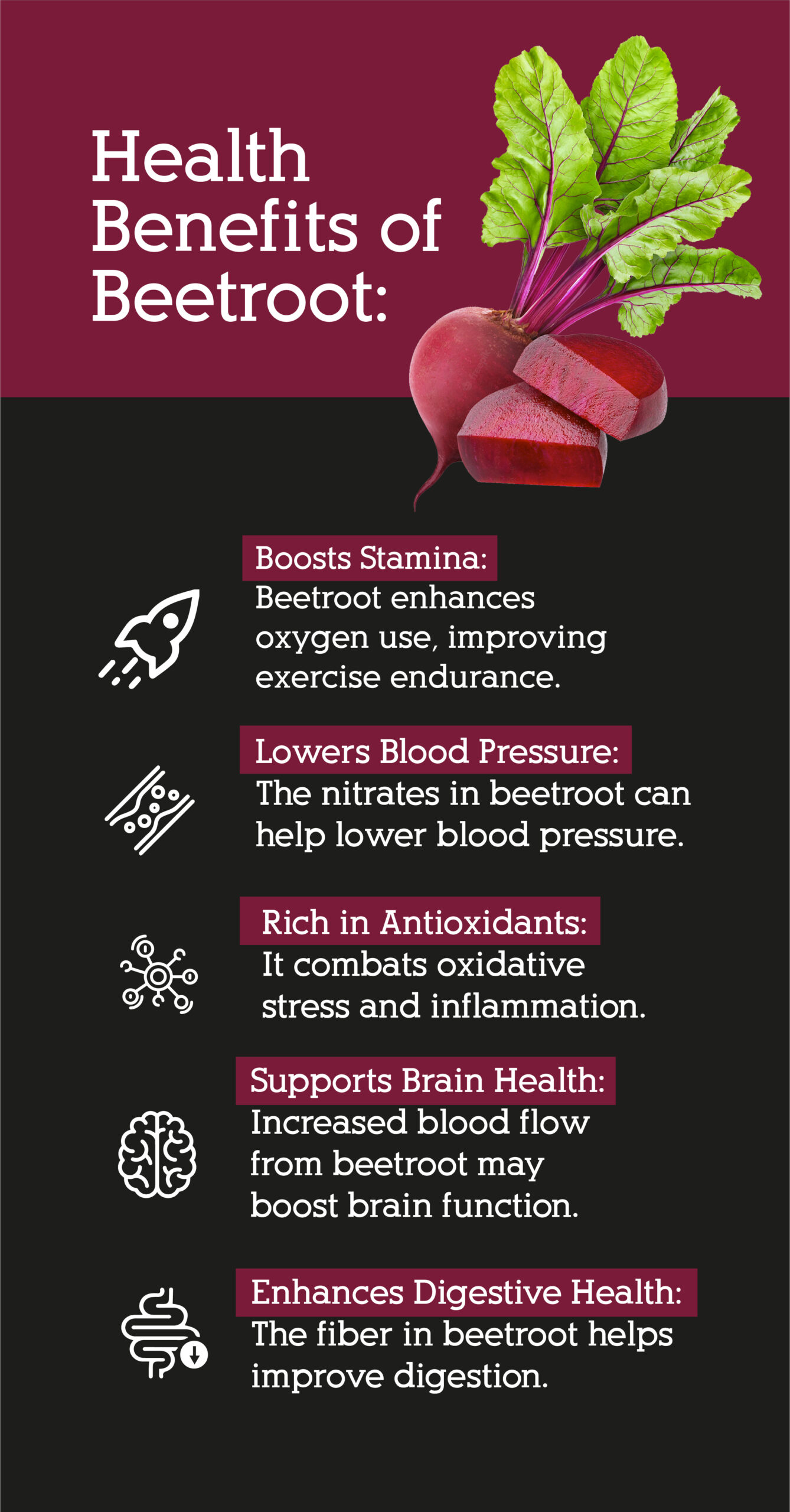
What is QO Q 10?
Coenzyme Q10 (CoQ10)(CO Q 10), also known as ubiquinol, is a naturally occurring antioxidant that plays a crucial role in cellular energy production. It is found in every cell of the body, where it helps convert food into energy. CoQ10 was discovered in 1957, Fredrick L. Crane and colleagues at the University of Wisconsin–Madison Enzyme Institute. The name “ubiquinol” comes from “ubiquitous,” reflecting its widespread presence in nature and the human body, thus reflecting its vital role in various biological functions. CoQ10 is also crucial for heart health and has been studied for its potential in treating multiple health conditions.
Co Q 10 has shown promise in studies exploring its effects on human blood pressure. A research synthesis found that CoQ10 supplements can significantly reduce systolic and diastolic blood pressure, particularly in individuals with elevated levels.
For example, a study cited in the SelfDecode Health report highlighted that CoQ10 supplementation was associated with a decrease in systolic blood pressure by 3-4% and diastolic blood pressure by 0.4-2% in individuals with slightly high blood pressure.
This positive effect is thought to be due to CoQ10’s role in enhancing blood vessel function and overall cardiovascular health, demonstrating its potential as a supplementary treatment for managing hypertension.
How COQ10 Works
Coenzyme Q10 helps improve heart function through several mechanisms:
- Energy Production: Co Q 10 is crucial in the mitochondrial energy production process. It helps convert the energy from carbohydrates and fats into ATP (adenosine triphosphate), the form of energy that cells use for most of their functions. This is particularly important in the heart, where energy demand is high.
- Antioxidant Protection: Co Q 10 is a potent antioxidant, protecting cells from oxidative damage caused by free radicals. This is essential for maintaining the health of the heart’s cells, as oxidative stress can lead to cardiovascular diseases, including hypertension and heart failure. It may also help extend the life of nitric oxide, meaning it plays very well with beets!
- Enhancing Blood Flow: Co Q 10 can help improve the endothelial function of blood vessels, leading to better circulation. It helps blood vessels to relax correctly, allowing for improved blood flow throughout the body, including the heart. This reduction in vascular resistance is one way in which CoQ10 can help reduce blood pressure levels.
- Reducing Oxidative Stress: By combatting oxidative stress, CoQ10 helps preserve the body’s nitric oxide, a compound essential for blood vessel dilation. This contributes further to lowering blood pressure and improving heart health.
These effects collectively contribute to CoQ10’s ability to support heart function, making it a valuable supplement for those looking to maintain cardiovascular health or lower BP.
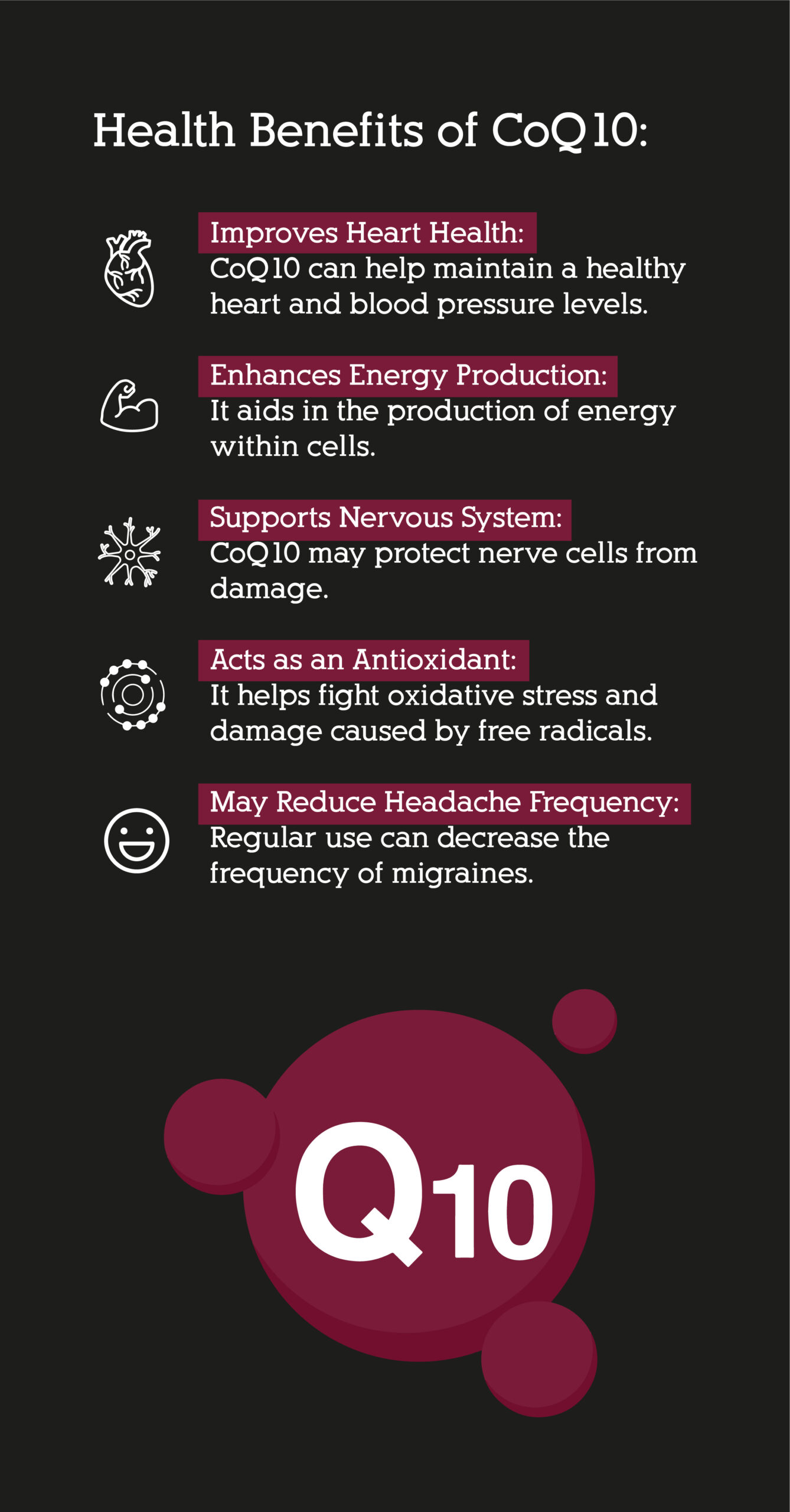
So, do they both work? Are both beets and COQ10 beneficial? How do beets differ from COQ10?
Beets and CoQ10 are both beneficial for health but function differently and offer distinct benefits:
- Beets: When high in dietary nitrates, beets help enhance blood flow and lower blood pressure by increasing the production of nitric oxide, which relaxes and dilates blood vessels. This can improve cardiovascular health, athletic performance, energy, etc. Beets are also rich in antioxidants and fiber, which support overall health, including digestive and inflammatory processes. But, again, for beets to really pack a punch, they need nitrates.
- Coenzyme Q10 (CoQ10): Known for its role in energy production and as an antioxidant, CoQ10 is crucial for the functioning of cells, especially in the heart. It helps improve energy production in cells, protects against oxidative damage, and may benefit conditions like heart disease and hypertension. CoQ10 also supports endothelial function, which can help maintain healthy blood pressure levels.
While both beets and CoQ10 support cardiovascular health, they do so through different mechanisms and are not directly substitutable for each other regarding their effects. Beets primarily enhance blood flow and reduce blood pressure through nitrate conversion, whereas CoQ10 contributes to energy production and antioxidant protection.
They are both great additions to any supplement regime and work well if you use the right kinds and sources, especially for beets.
We recommend the following beetroot supplement as it has over 100mg of natural nitrates.
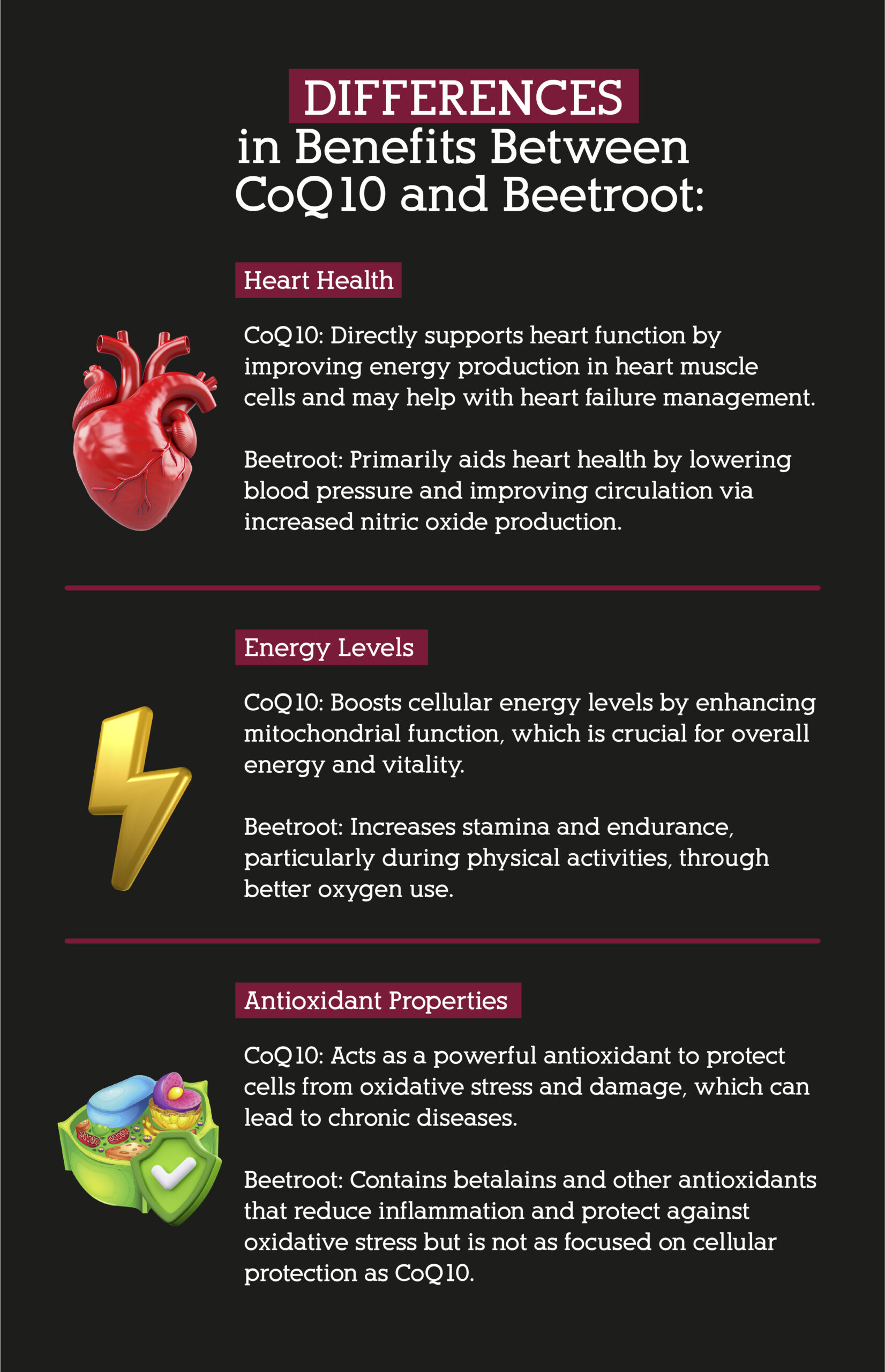
Can Nitric Oxide Be Harmful?
People Are Asking, Can Nitric Oxide Be Harmful?
Introduction
Nitric oxide has increasingly made the news rounds and been a topic of conversation. It is a vital molecule that signals various processes in the human body. The most notable process is helping to relax and dilate blood vessels. This improves blood flow and reduces blood pressure. It also supports immune function and nerve signaling. Interestingly, supplements marketed to boost nitric oxide don’t actually contain the molecule itself. Instead, they contain ingredients that stimulate the body to produce more nitric oxide naturally.
So, Can Nitric Oxide Be Harmful?
If you are concerned about having too much no because of some supplement, then you can stop here. You are totally safe.
No supplement has nitric oxide in it. They all work by stimulating your body to produce nitric oxide. And your body will almost always stop making it, well before any harmful levels would develop.
Amino Acids Like L-arginine
It is true that taking significantly high doses of L-arginine can potentially lead to various side effects. Excessive intake of L-arginine is more typically associated with gastrointestinal discomfort, changes in blood pressure, electrolyte imbalances, and other systemic reactions rather than directly causing dangerously high levels of nitric oxide. The exact same is true for citrulline. The specific concern of producing too much nitric oxide isn’t commonly highlighted in scientific literature. So it’s just not something to be concerned with.

What About Beetroot? Can Nitric Oxide Be Harmful From Beetroot?
Beetroot is effective at increasing nitric oxide levels due to its high nitrate content. It does so in a way that is generally considered safe. It is not likely to lead to overstimulation of nitric oxide production. This moderation occurs because the conversion process from nitrates to nitric oxide is naturally regulated by the body’s own mechanisms. The body converts what it needs through a controlled pathway that begins in the mouth and continues in the stomach. This is key to avoiding the risk of excessive nitric oxide production that could occur with direct supplementation of nitric oxide precursors in high doses.
Gradual Increase Of NO
The increase in no from consuming beetroot is gradual and dependent on individual body chemistry and bacteria in the mouth. This further ensures that it does not lead to the spikes in nitric oxide levels that could potentially be harmful. This makes beetroot a safe and natural way to support cardiovascular health through moderate enhancement of nitric oxide levels.
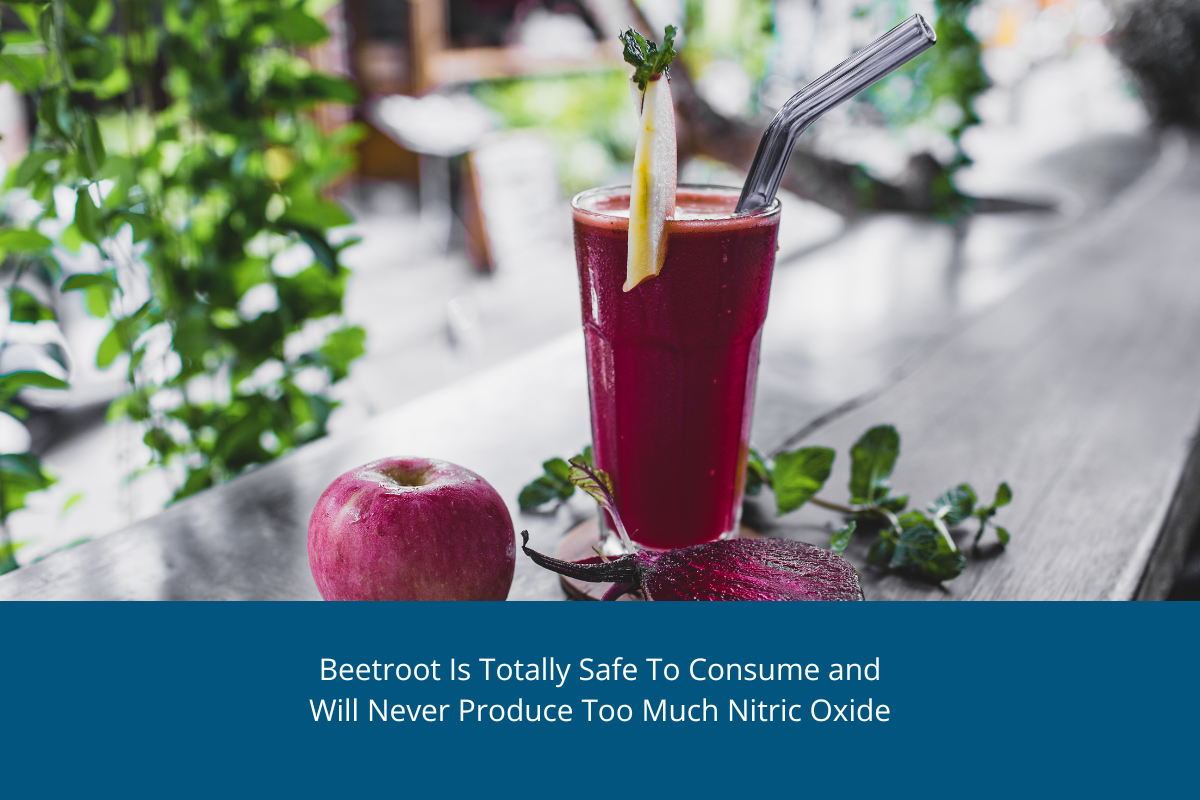
If you are concerned about maintaining optimal levels of nitric oxide, consider incorporating the following supplements and vitamins that can help ensure your body regulates it correctly:
Vitamins
Vitamin C – This antioxidant helps enhance the bioavailability of nitric oxide by stabilizing it and extending its functional lifespan in the bloodstream.
E – Known for its antioxidant properties, Vitamin E can also aid in the protection of cells and the enzymes responsible for nitric oxide production.
D3 – Adequate levels of Vitamin D are essential for cardiovascular health and may influence nitric oxide synthesis.
Herbs
Hawthorn Extract – Commonly used to support cardiovascular health, hawthorn increases the activity of enzymes that produce nitric oxide.
Grapes
Grape seed extract – is beneficial for regulating nitric oxide levels due to its high content of antioxidants, particularly oligomeric proanthocyanidin complexes (OPCs). These antioxidants are effective in several ways: Enhancing Nitric Oxide Production: Grape seed extract can help increase the production of nitric oxide by enhancing the activity of nitric oxide synthase, the enzyme responsible for its synthesis. This enzyme’s activity is positively influenced by the antioxidant properties of the extract, which reduce oxidative stress within blood vessels.
Protecting Nitric Oxide: The antioxidants in grape seed extract help protect nitric oxide from oxidative degradation. By reducing oxidative damage, more nitric oxide remains available and active in the bloodstream, which improves its overall effectiveness in dilating blood vessels and enhancing blood flow.
Improving Vascular Health: By supporting the integrity and function of blood vessels, grape seed extract helps maintain an environment where nitric oxide can be most effective. Healthy vascular conditions allow for better regulation and utilization of nitric oxide, ensuring it performs its critical roles in cardiovascular health efficiently.
Fruits & Berries
Camu camu – is a small, sour berry native to the Amazon rainforest. It’s celebrated primarily for its extraordinarily high vitamin C content, often cited as one of the richest natural sources. This makes camu camu a powerful antioxidant that can help boost immune function, protect skin health, and potentially reduce inflammation. Additionally, the high vitamin C level may aid in the natural production of nitric oxide, enhancing cardiovascular health through improved vascular dilation and blood flow.
Watermelon – is not only a refreshing fruit but also a significant source of the amino acid L-citrulline, which is important for cardiovascular and muscle health. When consumed, L-citrulline is converted by the kidneys into L-arginine and then into nitric oxide. This process helps to improve blood flow and lower blood pressure. Watermelon also contains various vitamins and antioxidants, contributing to hydration and overall health, making it both a delicious and nutritious choice.
Are Blood Pressure Medications Really Safe?
Are Blood Pressure Medications Really Safe?

Introduction
Millions of people worldwide rely on blood pressure medications to manage hypertension. This condition can lead to serious health issues like heart disease and stroke if left untreated. These medications are crucial in preventing complications and improving the quality of life for those with high blood pressure. However, as their use becomes more prevalent, there’s a growing public discourse about their safety and potential for some nasty side effects. While these medications can be life-saving, it’s essential to understand that they may come with risks like any treatment.
It is also crucial to realize that many doctors are trained by pharmaceutical companies, who leave out essential nutritional information. Giving you or your doctor alternative treatments is not in their financial interests.
So Are Blood Pressure Medications Really Safe?
Understanding Blood Pressure Medications
Blood pressure medications, also known as antihypertensives, are tools for lowering blood pressure and a means for taking control of your health. There are several types of blood pressure medications, each working in a different way to reduce blood pressure. Common types include beta-blockers, ACE inhibitors, angiotensin II receptor blockers (ARBs), diuretics, and calcium channel blockers. They are often used in combination to achieve the most significant effect.
Benefits and Risks
Despite their benefits, some studies have questioned the safety of specific blood pressure medications. For example, a study published in the BMJ in 2018 found that certain classes of antihypertensive drugs, particularly ACE inhibitors, were associated with an increased risk of lung cancer. The study suggested that the risk might be related to bradykinin and substance P in the lungs, which ACE inhibitors affect. This study sparked a conversation about the need for ongoing monitoring of the long-term effects of these medications. It also shows the importance of weighing the benefits against potential risks when prescribing them.
Possible Long Term Dangers
It’s crucial to recognize that the long-term impacts of medications deemed “safe” and extensively studied can remain somewhat ambiguous. Comprehensive testing on how a single drug affects every system within the body, or its interactions with all other medications and contemporary synthetic chemicals we encounter, is not always feasible. This underscores the complexity of assessing medication safety in real-world scenarios, where multiple factors and exposures come into play.
Be Careful
It’s crucial to approach the topic of blood pressure medication and use with a balanced perspective, acknowledging both their indispensable role in managing hypertension and the importance of vigilance and care regarding their long-term use.
Concerns and Side Effects
Navigating the landscape of blood pressure management can often feel like a tightrope walk, especially when multiple medications enter the equation. Each blood pressure medication, while potentially life-saving, carries its own suite of possible side effects and concerns. Individuals must arm themselves with knowledge and engage in proactive dialogue with healthcare professionals to mitigate these adverse effects effectively.
This journey towards optimal health becomes increasingly complex as the list of medications lengthens, obscuring the origins of side effects and complicating the management strategies. Recognizing the source of an adverse impact amidst a cocktail of medications demands a meticulous and collaborative approach, underscoring the importance of personalized care and open communication channels between patients and their healthcare teams.
Common Side Effects
- Diuretics often cause increased urination, leg cramps, and potential changes in potassium levels, which can lead to weakness and fatigue. In rare cases, they can cause intense foot pain indicative of gout (WebMD).
- Beta-Blockers: May lead to asthma symptoms, cold extremities, depression, erection problems, and sleep disturbances (WebMD).
- ACE Inhibitors: Known for causing a persistent dry cough, skin rash, and sometimes a loss of taste (WebMD).
- Angiotensin II Receptor Blockers (ARBs): Can result in dizziness as a common side effect (WebMD).
- Calcium Channel Blockers: Patients may experience constipation, dizziness, headaches, irregular heartbeats, and swollen ankles (WebMD).
Concerns
Because of their hazy effectiveness, there’s alot of research and interest in the safety of certain blood pressure medications. This conversation has been fueled by studies highlighting the risks associated with long term use. For example, some blood pressure medications, particularly in older adults, can exacerbate orthostatic hypotension. It causes a sudden drop in blood pressure upon standing—leading to dizziness and falls. Adjustments in electrolyte levels due to these medications can also pose a risk of developing dangerous heart rhythms (Cleveland Clinic).
Natural Approaches to Managing Blood Pressure
Understanding the Power of Nitric Oxide
Nitric oxide (NO) plays a crucial role in cardiovascular health, because it acts as a key regulator of blood pressure by dilating blood vessels for improved blood flow. This naturally occurring molecule is vital for not only maintaining optimal blood vessel health but also for supporting balanced blood pressure levels. Because of this, enhancing your body’s NO can be a natural strategy to manage blood pressure effectively.
Natural Supplements to Boost Nitric Oxide
To naturally support blood pressure levels, consider incorporating supplements that promote nitric oxide production:
- Ultimate Beetroot Energy. This supplement takes advantage of the nitrate-rich beetroot, which is converted into nitric oxide in the body, aiding in the relaxation and dilation of blood vessels. You can find more about it here.
- Ultimate Nitric Oxide Nutrition. Featuring a blend of amino acids such as L-arginine and L-citrulline, this supplement is designed to enhance the body’s production of nitric oxide, supporting cardiovascular health and blood pressure regulation. Discover more about this product here.
These supplements not only contribute to the natural management of blood pressure but also support overall cardiovascular health through the enhancement of nitric oxide levels.
Weighing Natural Supplements Against Blood Pressure Medications
When exploring natural supplements in comparison to conventional blood pressure medications, it’s essential to balance the potential benefits with any limitations. While natural supplements offer a complementary approach to managing blood pressure with fewer side effects, they might not replace medical treatment if you have dangerously high blood pressure.
Arginine and Blood Pressure Management
The Role of Arginine in the Body
Arginine, a vital amino acid, serves as a building block for nitric oxide. No is a crucial molecule that aids in maintaining vascular health. Nitric oxide’s primary function is to relax and widen blood vessels, thereby enhancing blood flow throughout the body. This process is essential for regulating blood pressure and supporting your cardiovascular health.
Comparing Arginine to Blood Pressure Medications
When exploring natural alternatives for blood pressure management, arginine stands out due to its direct impact on nitric oxide levels. Unlike blood pressure medications that may target specific pathways arginine offers a more holistic approach by naturally boosting NO production. This, in turn, leads to vasodilation ( opening of the veins), improved blood circulation, and reduced blood pressure levels.
Best Case Outcomes with Arginine Supplementation
In optimal scenarios, studies have shown that arginine supplementation can lead to significant reductions in blood pressure. Research findings indicate that individuals taking arginine may experience a decrease in systolic blood pressure by 5-10 mmHg and in diastolic pressure by 2-5 mmHg.
Contrast How Arginine Compares With Medications
Medications typically offer reductions in systolic blood pressure by up to 10-15 mmHg and in diastolic pressure by 5-10 mmHg. With results depending on the individual’s baseline levels and the specific medication used.
These results highlight arginine’s potential efficacy in managing blood pressure, comparable to the effects seen with some conventional blood pressure medications.
Arginine’s Potential in Blood Pressure Management
The promising effects of arginine on blood pressure underscore its value as a natural supplement for cardiovascular health. By fostering the body’s production of nitric oxide, arginine not only aids in lowering blood pressure but also supports the overall function of the vascular system. This makes arginine an appealing option for those seeking natural methods to enhance their cardiovascular health and manage blood pressure.
Top 5 Reasons Why You Can't Lower Your Blood Pressure Naturally

So, you started taking nitric oxide supplements or beets to manage your blood pressure naturally. But the results are different from what you expected.
Or, maybe you started eating a more heart healthy diet, but it didn’t do much to improve your blood pressure or other conditions. What went wrong?
How To Lower Your Blood Pressure Naturally
Nitric oxide is key for opening up your blood vessels, which helps lower blood pressure. It’s a natural element your body makes that helps heal and open your blood vessels’ inner lining. Most nitric oxide boosting products like arginine, citrulline, and beets work via different means to increase your nitric oxide.
However, a few things might hinder the effectiveness of nitric oxide or stop it altogether. Let’s find out why.
1. Your Body Might Not Be Able To Make Nitric Oxide
Nitric oxide is essential for keeping your blood vessels wide and your blood pressure in check. Your body makes it with the help of an enzyme called NOS. Sometimes, this process should work better. This can happen because of stress or toxins in your body. If so, you won’t get enough nitric oxide from your supplements or food. If you want to lower your blood pressure naturally you need nitric oxide to work for you!
Heavy metals can interfere with Nitric Oxide Synthase (NOS), the enzyme crucial for producing nitric oxide (NO) in your body. Metals such as lead, mercury, arsenic, and cadmium are particularly harmful because they can disrupt the normal functions of enzymes and proteins. For NOS, heavy metals can:
- Compete with Essential Nutrients. They might block the sites on the enzyme where essential nutrients, like zinc, need to bind. Zinc is vital for NOS activity, and without it, the enzyme can’t work correctly.
- Cause Oxidative Stress. These metals can increase the production of harmful free radicals, leading to oxidative stress. This damages cells and enzymes, including NOS, reducing their effectiveness and thus decreasing NO production.
- Disrupt Cellular Functions. Heavy metals can interfere with cellular components, impairing the overall environment necessary for NOS to function properly and affecting its ability to produce NO.
Detoxifying your body from heavy metals is crucial for maintaining the health of enzymes like NOS. Products designed to support detoxification can help remove these metals from your system, potentially restoring the normal function of NOS and enhancing NO production.
Check out Bionox’s Chelanox. It helps clean out those toxins so your body can return to making the nitric oxide it needs.
2. Your Supplement or Foods Might Not Have Enough Nitrates
Nitrates are key to making nitric oxide, especially when they come from natural sources like beets and arugula. If your supplement is based on beetroot but doesn’t pack enough nitrates, or your overall diet is low in these vital compounds, you will likely not get the full NO-boosting benefits. Trying to lower your blood pressure naturally with nitrate based products that have no nitrates is a common problem unfortunately.
It’s important to remember that while arginine supplements work differently by directly supplying a precursor for NO production, beetroot supplements rely on nitrates to kickstart the process. You might want to add more nitrate-rich foods to your diet to cover all your bases. If you used a nitrated-based supplement or plan on doing so, make sure of one thing first. It has to have nitrates! Look on the label for the standardized nitrate count. If they do not list it, then chances are it has zero nitrates! You want at least 50 mg of nitrates per dose and should get 200 mg a day minimum for best results.
Consider Bionox Ultimate Beetroot Energy and Arugula Super Cardio Greens, designed to fill in gaps and ensure you’re getting a good nitrate boost. They both have 100 mg of natural nitrates guaranteed per dose.
3. Antioxidant Deficiency
Antioxidants are the body’s defenders, safeguarding nitric oxide (NO) and boosting its production by fighting off oxidative stress. This stress, if unchecked, can quickly neutralize NO, reducing its availability and effectiveness in your body. Essentially, without enough antioxidants, even if your body produces NO, it might not stick around long enough to do its job.
That’s where nitric oxide boosters like Ultimate Nitric Oxide Nutrition (UNON) shine. It’s packed with a powerhouse of antioxidants, including Vitamin C and E, known for their ability to protect NO. These ingredients don’t just fight off the harmful effects of oxidative stress; they also work to extend the lifespan of NO in your system.
With more NO available longer, your body can better maintain those wide, relaxed blood vessels, supporting overall circulation and blood pressure levels. So, suppose you’re finding your current NO supplement needing improvement. In that case, it might be time to look into options like Ultimate Nitric Oxide Nutrition that boost NO production and ensure it has a lasting impact.
4. Environmental and Lifestyle Factors Could Be At Play
Your surroundings and how you live day-to-day greatly impact your body’s ability to produce and maintain nitric oxide (NO) levels. Certain environmental and lifestyle factors can be like thieves at night, stealthily depleting your NO, making it harder to manage blood pressure naturally.
Pollution
Living in areas with high pollution exposes you to a barrage of toxins. These toxins can induce oxidative stress, overwhelming your body’s antioxidants and directly depleting your NO levels. The result? Your blood vessels lose their ability to dilate correctly, making it harder to keep your blood pressure in check. These may include the heavy metals already mentioned but may consist of forever chemicals that are much harder to remove.
Smoking
Lighting up a cigarette introduces harmful chemicals into your body, including carbon monoxide, which competes with NO for binding sites in your blood and tissues. This reduces NO availability and damages your blood vessels, compounding your blood pressure issues.
Stress
Chronic stress is another NO thief. It triggers the release of adrenaline, which constricts your blood vessels. Over time, this constant state of “fight or flight” can degrade the endothelium, the inner lining of your blood vessels, making them less responsive to NO.
Sedentary Lifestyle
Lack of physical activity can lead to endothelial dysfunction. Exercise helps boost NO production by increasing blood flow and stimulating the endothelium. Without it, your body’s ability to produce NO can diminish, affecting your blood pressure.
To combat these effects, consider making healthier lifestyle choices. Find ways to reduce exposure to pollution and toxins, quit smoking, manage stress through techniques like meditation or yoga, and incorporate regular exercise into your routine.
Alongside these changes, opting for supplements designed to fight these specific challenges can be a game-changer. Products that support NO production and provide additional antioxidants can help counteract the negative impacts of your environment and lifestyle choices. For example, supplements rich in antioxidants and other nutrients that support NO production, like Bionox’s Ultimate Nitric Oxide Nutrition, can provide a protective boost, helping your body to maintain better blood pressure management despite the challenges posed by your environment and lifestyle.
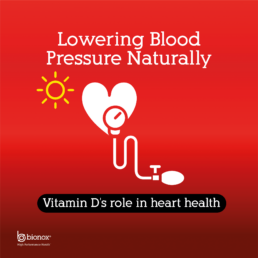
5. Underlying Health Conditions and Medications
Sometimes, the hurdle in managing your blood pressure naturally through nitric oxide (NO) isn’t just about diet or lifestyle—it can also stem from underlying health conditions and the medications used to treat them.
Here’s how these factors might be playing a role:
Health Conditions Like Diabetes and Hypertension: These conditions can impair the body’s ability to produce and utilize NO effectively. High blood sugar levels from diabetes can damage blood vessels, making them less responsive to NO. Hypertension can stress blood vessels constantly, reducing NO availability over time.
Medications That Lower NO Levels: Certain medications can inadvertently decrease your body’s NO production or availability. For instance:
- Antibiotics and Mouthwash: Surprisingly, these can disrupt the balance of good bacteria in your mouth and gut. These bacteria are crucial for converting dietary nitrates into NO. Without them, your body’s NO production can plummet, impacting blood pressure management.
- Other Medications: Some blood pressure medications, pain relievers (like non-steroidal anti-inflammatory drugs, or NSAIDs), and antacids can also interfere with NO production or availability in the body.
Low Vitamin D Levels: Vitamin D plays a multifaceted role in heart health and blood pressure regulation, including supporting the pathways that produce NO. Low vitamin D levels can hinder the body’s ability to produce NO, making it more challenging to manage blood pressure naturally.
Tackling the Issue:
- Reevaluate Your Medications: If you suspect your medications might be affecting your NO levels, it’s worth discussing alternatives or adjustments with your healthcare provider. Note, never stop or change medication without professional advice.
- Boost Good Bacteria: Consider dietary changes or supplements that support the healthy bacteria in your mouth and gut. Foods rich in probiotics or nitrate-rich vegetables can help support natural NO production.
- Increase Vitamin D Intake: Whether through diet, sunlight, or supplements, ensuring you have enough vitamin D can support your body’s NO production and offer broader health benefits.
By addressing these underlying factors, you can better support your body’s natural NO production and, in turn, your efforts to manage blood pressure more effectively.
Clean Nitric Oxide: The Pure Path to Enhanced Health and Performance

Understanding Nitric Oxide
Nitric oxide is a powerful, naturally produced gas molecule. It plays a vital role in the body’s overall healthy functioning. Nitric oxide acts as a key signaling molecule within the vascular system as well. It does this by prompting blood vessels to relax and dilate. This process significantly enhances blood flow throughout the body. Thus ensuring that vital organs and muscles receive an optimal supply of oxygen and nutrients. The role of nitric oxide extends beyond vascular health. It touches many physiological processes crucial for maintaining homeostasis.
Nitric Oxide & Your Heart
The impact of nitric oxide on cardiovascular health is profound. By facilitating vasodilation, nitric oxide helps to regulate blood pressure. It also helps by improving the health of blood vessels. This thereby reduces the risk of cardiovascular diseases such as atherosclerosis, hypertension, and heart failure. Its role in cardiovascular health is a cornerstone of preventative wellness strategies and therapeutic approaches for heart-related conditions.
Exercise Performance
In terms of exercise performance, nitric oxide is equally influential. Its healthy circulation effects lead to improved oxygen delivery to muscles. This in turn enhances endurance and strength, reduces fatigue, and speeds up recovery times. Athletes and fitness enthusiasts often turn to nitric oxide supplements to leverage these benefits. Many can ofter surpass their performance thresholds and achieve new personal bests. The efficiency of nutrient delivery and waste removal in muscles directly correlates with one’s ability to perform and recover. This makes nitric oxide a critical component of any fitness regimen.
The Need for Clean Nitric Oxide
The pursuit of wellness and enhanced performance has led to the popularity of nitric oxide supplements. Yet, the quest for health benefits must not overlook the paramount importance of purity in these supplements. Here, we explore the risks linked to impurities and the potential for contaminants to diminish nitric oxide’s effectiveness. We also go into the quality of products like Ultimate Nitric Oxide Nutrition.
Risks Associated with Impure Nitric Oxide Supplements
- Introduction of Toxin. Supplements contaminated with heavy metals or harmful chemicals can introduce toxins into the body, posing significant health risks.
- Adverse Health Effects. Impurities in nitric oxide supplements can lead to unwanted side effects. These can cause allergic reactions or more severe health complications. This undermines the primary intent of supplementation.
How Contaminants Can Negate the Benefits of Nitric Oxide
- Reduced Efficacy: Contaminants can interfere with the body’s ability to absorb and utilize nitric oxide, reducing its vasodilatory and health-promoting effects.
- Inflammation and Oxidative Stress: Instead of benefiting from nitric oxide’s potential to combat inflammation and oxidative stress, impure supplements may exacerbate these conditions.
Concerns Over Products Made in China
- Quality Variability: Supplements sourced from China may face scrutiny due to inconsistent quality control and regulation standards, potentially affecting purity.
- Risk of Contamination: The higher incidence of contaminants in some products from this region raises concerns over the safety and efficacy of these supplements.
Amino Acids Derived from Human Hair vs. Fermentation Process
- Source Matters: Many consumers are unaware that some amino acids in supplements are derived from sources like human hair or duck feathers, raising ethical and quality concerns.
- Ultimate Nitric Oxide Nutrition’s Commitment to Purity: Unlike these methods, Ultimate Nitric Oxide Nutrition utilizes a fermentation process for amino acid production. This method not only ensures a vegan and ethical product but also guarantees a higher purity level, devoid of the contaminants and ethical issues associated with other sources.
Clean Nitric Oxide
The focus on clean nitric oxide supplementation is more than a matter of efficacy; it’s a commitment to safety, ethics, and quality. Ultimate Nitric Oxide Nutrition exemplifies this commitment, providing a pure, potent, and ethically produced option for those seeking the myriad benefits of nitric oxide without the risks associated with impurities and questionable manufacturing practices.
Ultimate Nitric Oxide Nutrition sets itself apart in the world of supplements by being completely stimulant-free. This distinct characteristic is crucial for individuals seeking health benefits without the unwanted side effects often associated with stimulant-laden products.
Stimulant-Free Advantage
- No Jitters or Anxiety: Unlike many supplements that rely on stimulants like caffeine for a temporary energy boost, Ultimate Nitric Oxide Nutrition provides sustained energy without causing jitteriness, anxiety, or the dreaded crash.
- Better Sleep Quality: The absence of stimulants means that Ultimate Nitric Oxide Nutrition won’t interfere with sleep patterns. This is particularly important for those who prioritize recovery and rest as part of their health regimen.
- Broader Audience Appeal: By being stimulant-free, Ultimate Nitric Oxide Nutrition is suitable for a wide range of individuals, including those sensitive to caffeine or other stimulants, and those with conditions that necessitate avoiding such compounds.
Sustained Energy and Performance
- Ultimate Nitric Oxide Nutrition harnesses the power of nitric oxide to improve blood flow and oxygen delivery to tissues. This process supports enhanced physical performance and energy levels naturally, without the need for stimulants.
Heart Health and Wellbeing
- The formulation of Ultimate Nitric Oxide Nutrition is designed not only to enhance performance but also to support cardiovascular health. The stimulant-free nature of the product ensures that users can enjoy these benefits without risking the negative side effects on heart rate or blood pressure that stimulants can induce.
Commitment to Purity and Health
- The choice to keep Ultimate Nitric Oxide Nutrition stimulant-free reflects a deep commitment to purity and the overall health of its users. It aligns with the goal of providing a supplement that offers benefits derived from its active ingredients’ natural properties, not from artificial and temporary stimulant effects.
Ultimate Nitric Oxide Nutrition’s stimulant-free formula is a testament to the belief that true health and performance enhancement can be achieved through natural, clean, and ethical means. It offers a safe, effective alternative to those looking to improve their health, fitness, and well-being without compromising their comfort or safety.
Microplastic Detox: Uncovering the Hidden Plastics in Beauty Products
A Microplastic Detox You Need To Know About!
Discover the Hidden Dangers of Microplastics in Your Daily Beauty Routine
Did you know your daily beauty routine might be contributing to a global issue? Yes, microplastics, those tiny particles smaller than a grain of rice, are lurking in your favorite cosmetics, body washes, and even toothpaste.
Used as a cheaper alternative to natural exfoliants, these minuscule plastics are not only harmful to the environment but could also pose risks to your health.

The Unseen Threat in Your Toothpaste
Take a closer look at your toothpaste. See those sparkling little blue dots? They might be microplastics, specifically polyethylene. This form of plastic, the most popular worldwide, adds that glittery look but at a significant environmental and health cost. Seems insane this is not illegal but greed rules the day, and your health is just not important to the companies who use this.
The Truth About Face and Body Washes
Feeling clean might come at a hidden price. Face and body washes often contain polypropylene microbeads. These tiny plastic particles act as exfoliants, but they eventually find their way into our waterways, contributing to pollution in rivers, lakes, and oceans.

Cosmetics: A Plastic Beauty
Almost every makeup product, from blush and foundation to mascara and lipstick, might contain plastics. The list include the likes of polyethylene, polypropylene, or polyethylene terephthalate (PET). Even the glitter in your makeup is essentially tiny pieces of plastic. People are adding to microplastic pollution with every use of these products.
The Impact on Health and Environment
Before these microplastics wash down the drain, they can pose significant health risks. Inhaling microplastics has been linked to asthma, heart disease, and even cancer. Recognizing the threat, the United States introduced the Microbead-Free Waters Act in 2015, aiming to reduce the use of microbeads in cosmetic products. Notice the word “reduce” and not stop. So buyer beware!
Making a Difference with Microplastic Detox
As consumers, we play a crucial role in combating microplastic pollution. By choosing products without polyethylene, polypropylene, or PET, we can make a more environmentally friendly choice. Opting for natural alternatives not only benefits the planet but also supports our well-being.

Chelanox by Bionox: Your Ally in Microplastic Detox
In your journey towards a microplastic detox, consider integrating products like Chelanox by Bionox into your routine. This innovative solution supports your body’s natural detoxification processes. It works by helping to mitigate the impacts of environmental pollutants, including microplastics. By choosing environmentally friendly products and supporting your body’s health, you can make a significant difference for both your well-being and the planet.
A Call to Action
Living entirely without plastics might be a daunting task, but being mindful of our choices can lead to substantial positive changes. Next time you’re shopping for beauty products, take a moment to read the labels. Opt for products that are free from harmful microplastics and consider how your daily routine can contribute to a healthier planet. Together, we can make a difference in the fight against microplastic pollution.
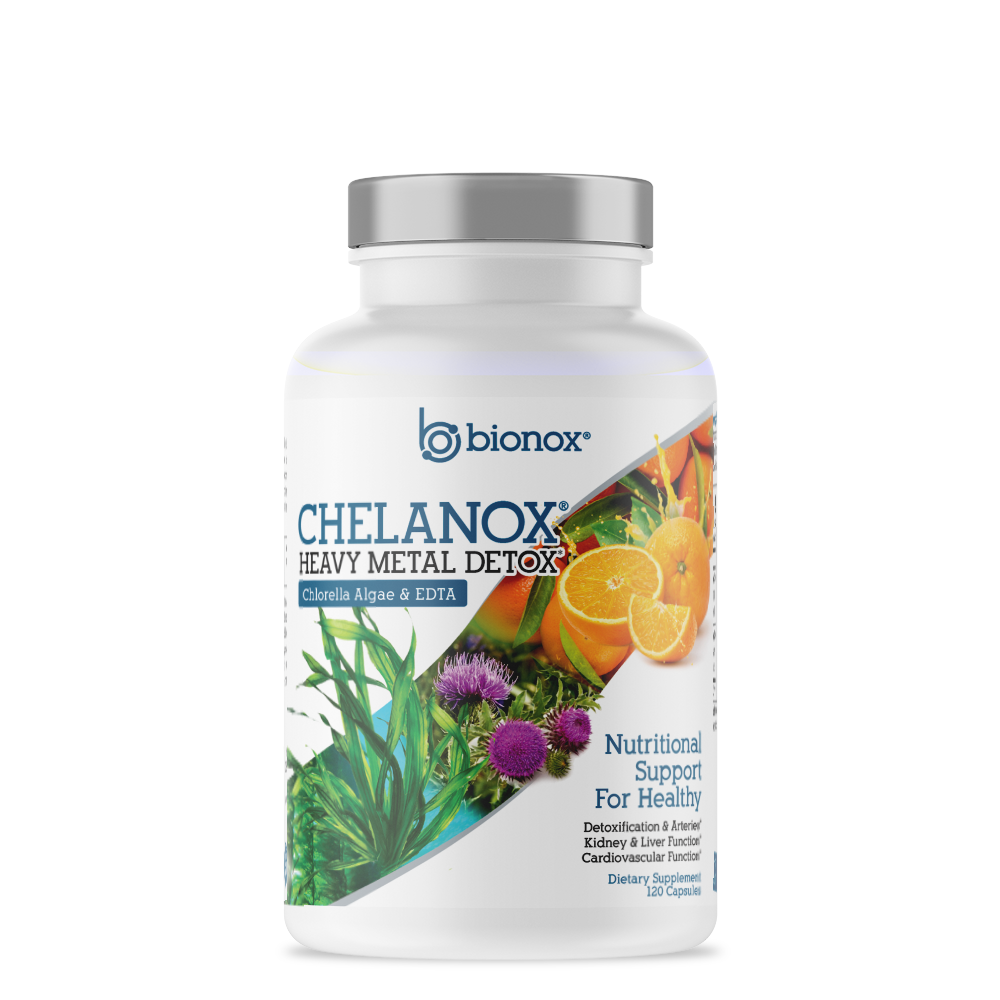
Citrulline and Erectile Dysfunction
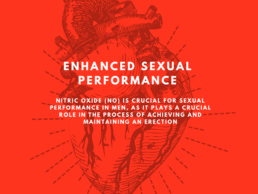
Citrulline for Erectile Dysfunction A Natural Approach to Enhancing Male Performance
Erectile Dysfunction (ED) affects many, leading to a search for natural solutions beyond prescription medications like Viagra or Cialis.
One such solution gaining attention is L-Citrulline, an amino acid found abundantly in foods like watermelon. Citrulline is a promising alternative for men seeking a more natural path to improving their sexual health. So what’s the deal? Can it bring the circus back to town? Can it pitch your tent?
The Science Behind Citrulline and Erectile Dysfunction
L-Citrulline and L-Arginine are both crucial amino acids, acting as building blocks for protein. Interestingly, L-Arginine plays a direct role in the production of Nitric Oxide. NO is a gas that dilates blood vessels, an essential process for achieving erections.
However, the conversion of L-Citrulline to L-Arginine in the body makes Citrulline a significant player in this process, potentially more so than L-Arginine itself.
Kind of weird right? Citrulline beats arginine, by becoming arginine? Weird we know but it makes sense.
Why Citrulline Out Arginines Arginine
Citrulline surpassing Arginine at its own game by transforming into Arginine might seem peculiar at first glance. But, when you dive into the science behind it, this peculiar process is what makes Citrulline an unsung hero for enhancing Nitric Oxide levels and, consequently, improving blood flow and erectile function.
The Intriguing Role of Citrulline
The body’s utilization of Citrulline to produce Arginine offers a clever workaround to the limitations faced by Arginine supplementation directly. Here’s why this transformation is not just weird, but wonderfully efficient:
- Improved Absorption: Citrulline is absorbed more effectively than Arginine when taken as a supplement. This means that more of what you ingest actually ends up being used by your body, rather than being broken down and excreted.
- Bypassing Metabolic Breakdown: Arginine, when consumed, faces the challenge of being partially broken down by the enzyme arginase in the liver and intestines. Citrulline, however, bypasses this early breakdown, leading to a greater increase in blood levels of Arginine once it is converted.
- Sustained Release of Arginine: The conversion of Citrulline to Arginine isn’t instant; it’s a time-released process that ensures a more steady and prolonged elevation of Arginine levels in the blood. This sustained release helps maintain optimal Nitric Oxide levels over time, providing a more consistent benefit for blood flow and, by extension, erectile function.
Why This Matters
Understanding the unique benefits of Citrulline in the production of Arginine and Nitric Oxide not only highlights the importance of choosing the right supplements but also sheds light on the body’s complex biochemistry. It’s a perfect example of how supplements can work in harmony with the body’s natural processes to enhance health outcomes, especially in areas as sensitive and crucial as erectile function.
So, while the process might seem a bit “weird” at first, it’s a fascinating insight into how our bodies optimize the nutrients we consume. This transformation from Citrulline to Arginine underscores the potential of leveraging natural pathways to support and enhance physiological functions.
Why Choose Citrulline Over Arginine?
In reality, you want to combine them both, but for now here is why citrulline is so key. Research indicates that Citrulline may be more effective than Arginine in improving erectile function. This effectiveness boils down to two main reasons:
- **Better Absorption:** L-Arginine faces absorption challenges, with some of it breaking down before it can benefit the body. L-Citrulline doesn’t encounter this issue, making it a more efficient option.
- **Avoid Unpleasant Side Effects:** High doses of L-Arginine can lead to gastrointestinal distress, including diarrhea, which is less than ideal for sexual activities. Citrulline, on the other hand, does not have this problem, making it a more comfortable choice.
How Much Citrulline Should You Take?
Determining the exact dosage of L-Citrulline for optimal effects on erectile dysfunction is challenging due to the lack of definitive studies. However, the key is finding a balance that suits your body without adverse effects.
Where to Find Citrulline
L-Citrulline supplements are readily available online, in drugstores, pharmacies, and vitamin shops like GNC, making it accessible for those looking to enhance their sexual health naturally.
Choosing Citrulline for erectile dysfunction offers a promising alternative for those seeking to improve their sexual performance through natural means. While more research is needed to pinpoint the optimal dosage, its benefits in enhancing blood flow and avoiding the side effects associated with L-Arginine make it a noteworthy consideration for individuals exploring natural solutions to ED.
The Power of Combining Arginine and Citrulline
Arginine and Citrulline work together in the body’s Nitric Oxide cycle. Arginine also is directly converted into Nitric Oxide. Citrulline, on the other hand, serves as a precursor to Arginine, increasing its availability in the body. When these two amino acids are combined, they enhance each other’s efficacy, leading to sustained levels of Nitric Oxide production.
So even though we think citrulline is better in many ways, the combination of both arginine and citrulline is the best of the best! Look for products the use a 2:1 ratio of arginine to citrulline.
Why a 2:1 Ratio?
The 2:1 ratio of Arginine to Citrulline is considered optimal for a few reasons:
- Enhanced Absorption: Citrulline as mentioned before, is more readily absorbed by the body than Arginine. Once absorbed, Citrulline is converted into Arginine in the kidneys. It works by bypassing the digestive system where Arginine could be broken down. This process ensures a steady supply of Arginine from the ingested Citrulline.
- Prolonged Effect: By combining Arginine and Citrulline, the body can maintain elevated levels of Nitric Oxide over a longer period. Arginine provides an immediate but shorter boost. Citrulline ensures a delayed but continuous conversion to Arginine. Thus offering a time-released effect that prolongs the vasodilatory benefits.
- Reduced Side Effects: High doses of Arginine alone can lead to gastrointestinal distress. Incorporating Citrulline can mitigate these effects while still enhancing the overall effectiveness of the supplement by providing a steady release of Arginine.
Implementing the 2:1 Strategy
Incorporating a supplement with a 2:1 ratio of Arginine to Citrulline could be a game-changer for individuals looking for natural ways to manage erectile dysfunction. This ratio not only ensures the efficient production of Nitric Oxide but also maximizes the availability of Arginine over an extended period, enhancing blood flow and erectile function without the abrupt peaks and troughs associated with single amino acid supplementation.
Conclusion
The strategic combination of Arginine and Citrulline in a 2:1 ratio represents a sophisticated approach to natural erectile dysfunction management. By harnessing the synergistic effects of these two amino acids, individuals can experience a more consistent and prolonged improvement in erectile function, paving the way for a more satisfying and less disruptive experience in managing ED naturally.


